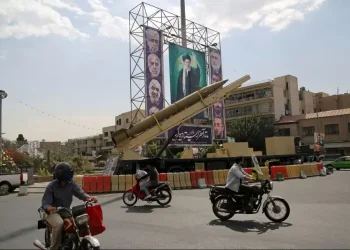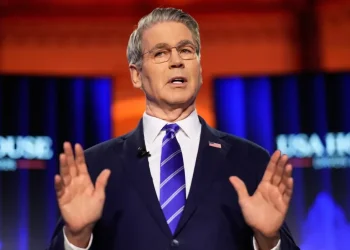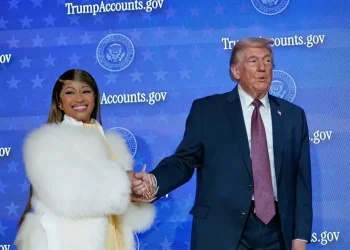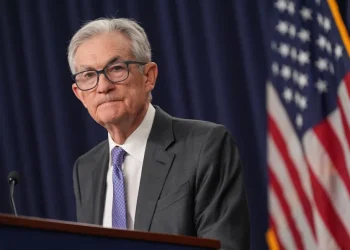Question on ASEAN Stumps Hegseth at Senate Hearing: What is ASEAN and Why is It Important?
At a heated Senate confirmation hearing, Senator Tammy Duckworth challenged Pete Hegseth, President-elect Donald Trump’s nominee for defense secretary, on his knowledge of international affairs. Duckworth asked Hegseth to name a member of the Association of Southeast Asian Nations (ASEAN), describe the type of agreements the U.S. has with the bloc, and state the number of member nations.
Hegseth’s response highlighted a lack of familiarity. He admitted he couldn’t name the number of ASEAN members and incorrectly referenced U.S. allies in South Korea and Japan as part of the AUKUS pact with Australia. Duckworth promptly corrected him, saying, “None of those three countries are in ASEAN,” and advised him to “do a little homework.”
What is ASEAN?
ASEAN is an organization of 10 Southeast Asian countries, with East Timor set to join as the 11th member soon. The current members are:
- Brunei
- Cambodia
- Indonesia
- Laos
- Malaysia
- Myanmar
- Philippines
- Singapore
- Thailand
- Vietnam
Founded in 1967, ASEAN aims to foster regional economic and security cooperation, uniting a population of over 650 million people and a combined GDP exceeding $3 trillion.
ASEAN’s Relevance to U.S. Interests
ASEAN plays a critical role in U.S. foreign policy, especially in the Indo-Pacific, where China’s growing influence and assertive territorial claims pose challenges. Several ASEAN nations, including Vietnam, the Philippines, Malaysia, and Brunei, are engaged in maritime disputes with China over sovereignty in the South China Sea, one of the world’s most vital shipping routes. Indonesia has also raised concerns about China’s encroachment on its exclusive economic zone.
The U.S. is a treaty ally of two ASEAN members—Thailand and the Philippines—and has sought to strengthen ties with the bloc to counterbalance China’s influence. ASEAN is integral to promoting the U.S.’s vision of a “free and open Indo-Pacific.”
ASEAN’s Role in U.S. Defense and Diplomacy
ASEAN’s significance to the U.S. extends beyond trade and security:
- Top-Level Engagements:
- The U.S. defense secretary and secretary of state regularly attend ASEAN meetings.
- Both President Joe Biden and former President Donald Trump have participated in ASEAN summits.
- In 2022, Biden hosted ASEAN leaders in Washington and emphasized ASEAN’s centrality to his Indo-Pacific strategy.
- Strategic Partnerships:
In 2022, the U.S. was elevated to a “comprehensive strategic partnership” with ASEAN, matching China’s status. - Geopolitical Balance:
ASEAN provides a platform where the U.S. can engage diplomatically, even with nations that have close ties to Beijing.
Why Else is ASEAN Important?
ASEAN’s influence extends globally due to its unique position as a hub for multilateral partnerships:
- Broad Relationships:
ASEAN has formal ties with global powers, including Russia, India, Japan, South Korea, Australia, the European Union, and Britain. - Regional Summits:
- ASEAN hosts ASEAN Plus Three (China, Japan, and South Korea) and ASEAN Plus Six (adding Australia, India, and New Zealand) meetings.
- The East Asia Summit brings together leaders from ASEAN, the six nations above, Russia, and the U.S.
- Economic Agreements:
- ASEAN is central to the Regional Comprehensive Economic Partnership (RCEP), the largest trade bloc in history, covering more than 30% of the global population and GDP.
- Several ASEAN countries are also part of the Comprehensive and Progressive Agreement for Trans-Pacific Partnership (CPTPP), whose members account for over 14% of global GDP.
Conclusion
ASEAN is vital to U.S. foreign policy as it stands at the intersection of economic, security, and diplomatic interests in the Indo-Pacific. For a U.S. defense secretary, understanding ASEAN’s structure, role, and challenges is essential to navigating the complexities of the region and countering the growing influence of powers like China.
This article was rewritten by JournosNews.com based on verified reporting from trusted sources. The content has been independently reviewed, fact-checked, and edited for accuracy, neutrality, tone, and global readability in accordance with Google News and AdSense standards.
All opinions, quotes, or statements from contributors, experts, or sourced organizations do not necessarily reflect the views of JournosNews.com. JournosNews.com maintains full editorial independence from any external funders, sponsors, or organizations.
Stay informed with JournosNews.com — your trusted source for verified global reporting and in-depth analysis. Follow us on Google News, BlueSky, and X for real-time updates.













